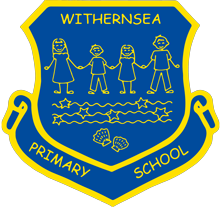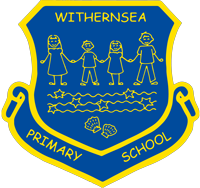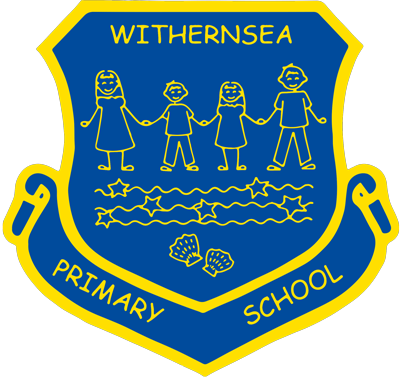History – curriculum information
Intent
The history curriculum at Withernsea aims to give all students a broad and balanced view of the History of Britain and the wider world. We aim to improve every students’ understanding of their own heritage and the world around them by covering key periods of history, the major civilisations and empires and other significant events. In line with the National Curriculum, we aim to ensure that our pupils understand historical concepts such as continuity and change, cause and consequence, similarity, difference and significance, and use them to make connections, draw contrasts and analyse trends. Our teaching aims to inspire pupils’ curiosity to know more about the past; they are encouraged to ask historically-valid questions, use appropriate terminology, evaluate the impact of key events on the present day and conduct historical enquiries, including how evidence is used rigorously to make historical claims. The children at Withernsea are taught to make use of the resources within the immediate and wider local area; local studies of Withernsea’s heritage sights enable the children to develop a deep understanding of the history of their locality. The history curriculum at Withernsea is carefully planned and structured to ensure that topics are informed by the national curriculum and are sensitive to children’s interests, as well as the context of the local area. We have ensured that current learning is linked to previous learning, and that as our pupils move up the school, their chronological narrative expands further from the present day to the earliest examples of history.
Implementation
To ensure high standards of teaching and learning in history, we implement a curriculum that is progressive throughout the whole school. History is taught mostly as part of a termly topic, focusing on knowledge and skills stated in the National Curriculum. At Withernsea, we ensure that history, as well as other foundation subjects, have the same importance given to them as the core subjects. Topics have been carefully selected to ensure coverage and progression in all skills relating to history. Our quality-first teaching aims to meet the needs of all children and our history lessons are designed to be inclusive and differentiated to support disadvantaged children in our community. Our history planning also provides excellent opportunities to enhance the learning of more-able pupils through investigations, analysing sources and writing extended pieces. By the end of Year 6, children will have a chronological understanding of British history from the Iron Age to the present day. By intertwining British studies with world history such as the ancient civilisations of Egypt and Greece, we give children a ‘bigger picture’ of the world around them beyond Britain.
In Key Stage One and EYFS, our history units focus mainly on the world around the children, including their living memory of history and that of their grandparents, before moving to events that go beyond living history. This provides a firm foundation for history in Key Stage Two and allows the children to begin developing a sense of chronology and historical sequence. Local studies such as Grace Darling, the Withernsea Pier and the Victorian buildings at Withernsea Primary enable all children to gain ‘real-life’ experiences and begin to compare the similarities and differences in environments and communities.
In Key Stage Two, the history curriculum is set out so that the eldest children in the school are studying the earliest periods of history. This deliberate organisation is based upon our understanding that older children have a better historical consciousness and understanding of time to study events that are furthest away from their living memory. With this in mind, Year 6 cover Ancient Egypt (as well as a snapshot study of World War Two), whilst Year 5 study Ancient Greece and the Iron Age. Year 4 cover the Romans, Vikings and Anglo-Saxons and Year 3 investigate the Mayan civilisation as well as the local fishing heritage of Hull and a comparative study of Withernsea then and now. To show progression, at the end of each unit the children are asked what they have learned comparative to their starting points through a short quiz or another form of assessment.
Impact
Our history curriculum is focused on the progression of knowledge, skills and vocabulary. The impact and measure of our history topics ensure that by the time children leave Withernsea Primary, they are ready for the curriculum at Key Stage Three and for life as an adult in the wider world. We strive to ensure that our pupils appreciate the history of their locality and understand the impact of key individuals and historical periods on today’s world. Above all, we want our pupils to develop a passion for history and show enthusiasm, curiosity and excitement when learning about the past.
Information for parents
‘Leaders, including governors, understand the strengths and weaknesses of the school’s work.
They take decisive action to secure improvement. Consequently, the gaps in the progress made by different groups of pupils are diminishing.’
‘Teaching is improving. Teachers are successful in keeping pupils on task. They offer pupils activities which catch their imagination and motivate them to do well.’
‘ I would just like to say what a great help all the teachers and staff at Withernsea Primary School have been to parents/grandparents and carers during these very strange last months. Thank you’
‘I love school, its a good place to learn’…
‘I love school’ …
‘The curriculum supports pupils in developing positive attitudes to learning. Leaders have linked activities closely to pupils’ interests and aspirations. This has been particularly successful in engaging boys.’
‘its really fun, it makes learning fun’
‘Pupils behave well in the classroom and around the school. Teachers support pupils with
identified behaviour difficulties well.’
Pupils are making good progress in improving their reading, writing and mathematical skills. Pupils’ progress in key stage 1 is particularly strong. Pupils are developing a range of exciting vocabulary in their writing. Pupils’ handwriting and spelling are weaker.
‘Leaders have made significant improvements to early years provision. As a result, children
are making a strong start in building their skills in reading, writing and mathematics.’
‘Most-able pupils and those who have special educational needs (SEN) and/or disabilities generally make good progress because teachers match tasks carefully to their needs.’
‘I love school, its amazing, its like a second home’
‘Pupils who are experiencing significant turbulence in their lives are well supported. As a result, they stay engaged in their learning.’
‘You have all been amazing. I hope all you teachers are proud of yourselves for the way you have conducted things throughout this pandemic. Proud to say my children are students at Withernsea Primary School’
‘the teachers explain really well’
‘I would like to say thank you to everyone at Withernsea Primary School for everything you have done…..you have all been amazing’
‘thank you for keeping me safe’



